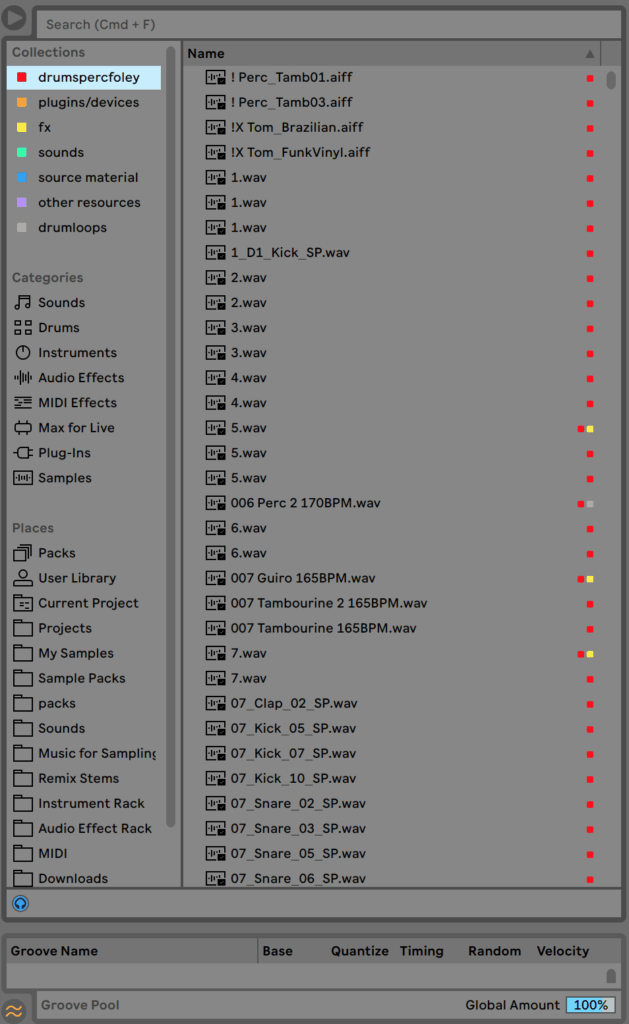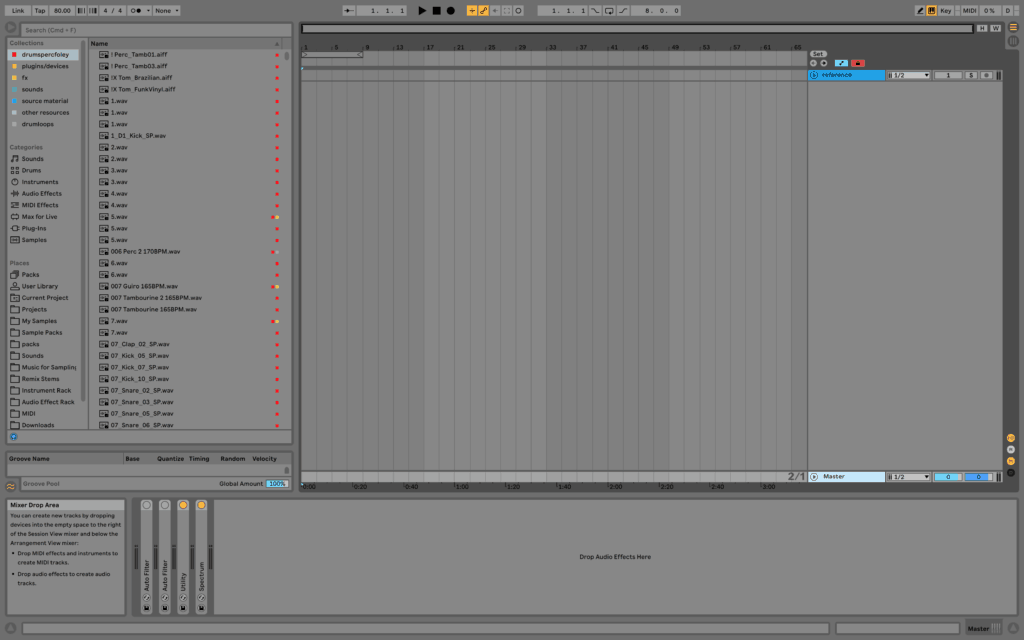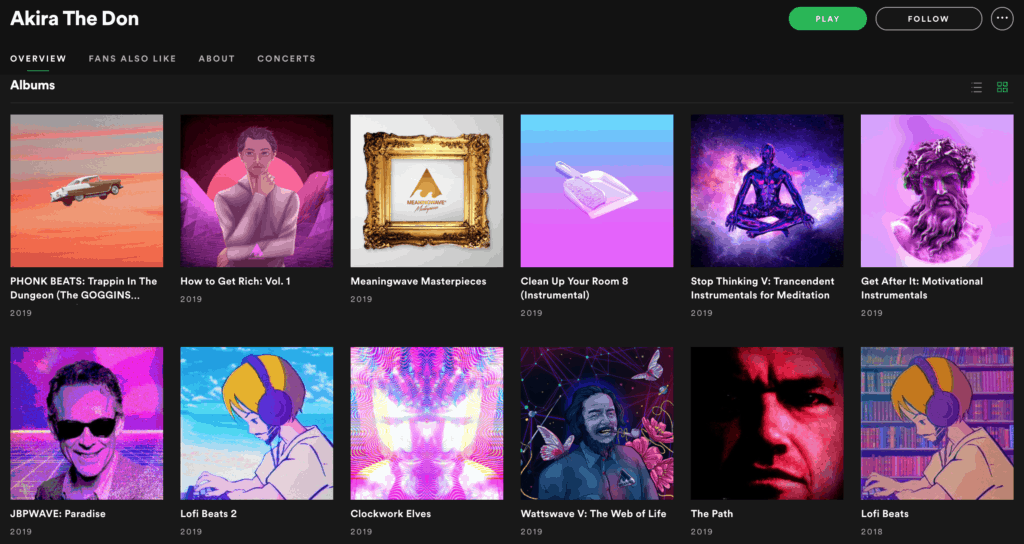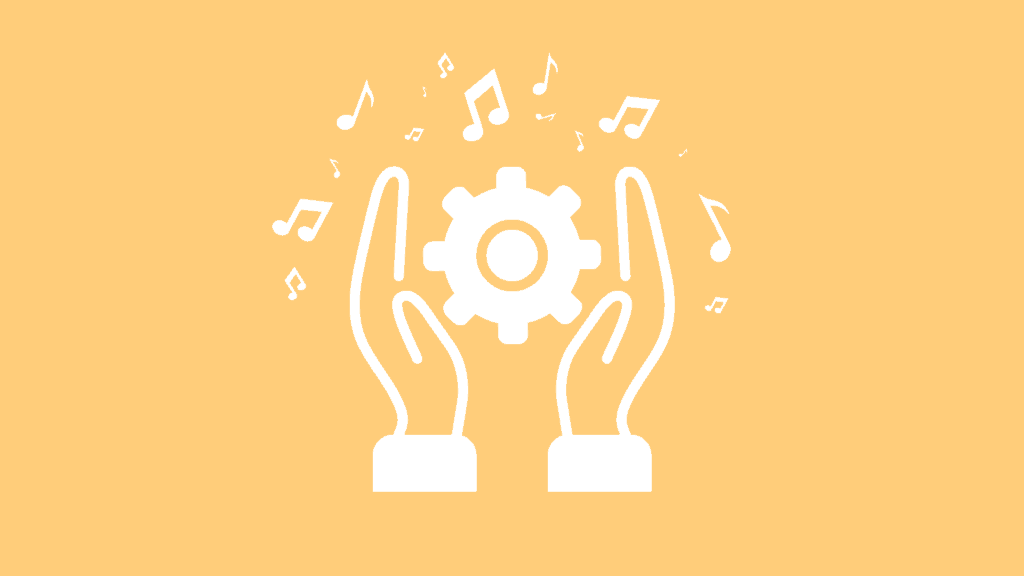It’s 2000 and the new year has ticked over.
You’re out with your friends, enjoying the early hours of the morning.
“Ah well, time to go home,” you say to your buddies.
“What? You can’t leave now!” your mate John replies.
“Why not? It’s 2AM?” you ask.
“We’re going all night, baby!” you other friend Derek replies.
“But nobody said we were…” sheepishly you respond.
The music production community can be funny.
As a bunch of creatives, a set of rules or norms can seem limiting and over-the-top. But like the example above, there are certain expectations that exist subconsciously, so when someone challenges them, all of a sudden they come to light.
The title of this article is a bit of a misnomer – it’s more like ‘what are the best practices in music production’ versus ‘what should they be?’
Not sure what I mean? Think of stereotypes and norms like:
- producers pull all-nighters making music
- you don’t put reverb on sub-bass
- all producers are nerds
- high-pass everything
- a track can only be good if it took a long time to produce
- it’s better to spend time on one track and make it good, rather than a lot of tracks
Some are cultural, some are technical, but they exist. Is that a bad thing?
Once again, it’s not a question of whether ‘best practices’ exist and if they’re bad or not. They exist whether you like it or not. It’s a matter of whether they help producers or not.
Striking Balance
Like I said earlier, most producers run and scream at the idea of rules surrounding music production. You could call it romanticizing, you could call it ignorance.
Obviously, music production is an inherently creative craft. It’s fun.
But what most producers don’t realise is that norms, rules and systems can actually enhance both creativity and enjoyment. Bad ones can ruin the process.
How?
Ever stared at a blank DAW? Ever wondered which way to take a track? Ever wondered where to find the best samples for your sound?
Exactly.
There needs to be some sort of boundaries in place that allow for greater creativity and also encourage you to do the work in the first place.
Are there universal best practices?
Everyone can do something that suits their own workflow and helps them to be more creative, enjoy the process and output more music.
But are there things that hold true for all producers? Something anyone can do that would benefit their music.
As we’ve already discussed, most producer’s haven given it much thought, so they adopt the culturally ingrained practices that the majority of producers automatically believe.
A lot of these are useful, but a lot of these are damaging.
Instead, here are some proposed best practices. I was very careful here to make these into absolute truths, so I made some criteria for choosing what they were:
- They can’t be genre-specific
- They can’t limit your creativity
- They can work for everyone
- They’re aimed at the prospect of creating better music
- They help you create more music
- They can’t take the joy out of the process
Remember, these are only ‘best practices’. Rules are there, but they can be broken if it’s called for.
BP 1: Organize Your Studio
I don’t think I’ve ever seen anyone benefit from a disorganised sample library.
Oh, you can stumble across random sounds? You can do that when they’re organised too, you know?
While each person will have a way of doing this that will benefit them, it’s important that it’s done rather than not.
I’d also argue that being organised prepares you more for creative inspiration. When your best sounds are curated and easily at hand, then you can quickly build at core ideas before they are lost. Nobody likes searching for 30 minutes for the perfect snare sample.
The point is that you do all the searching in bulk before you get into a session. Yes, this in itself isn’t the most joyful task, but it makes the production process more fun when you’re creating a track.

Example
In my studio, I use Ableton Live’s collections feature to find my favourite resources.
As you can see, I use all the different categories for different purposes:
- ‘drumspercfoley’ – all of my percussion sounds, including kicks, snares, claps, hats and other various interesting percussion sounds
- ‘plugins/devices’ – I save my most-used plugins, devices and racks here so I don’t have to search every time in the folders
- ‘fx’ – all my favourite FX in one place
- ‘sounds’ – melodic samples and sounds, from chord sounds to one-shots to load up in a Simpler
- ‘source material’ – full tracks, excerpts or acapellas to sample melodic and harmonic material from
- ‘other resources’ – misc. things like my favourite groove files, random folders of stuff or stuff that doesn’t fit into the other folders
- ‘drumloops’ – I have loops in a second folder to I can find them separate to one-shot drums
Beyond this, I have a variety of folders down below for the full range of samples I have, MIDI files, and other various audio files. You don’t need to have as many as I do, but it helps to have what you need.
Lastly, it helps to have your template set up the way you like it.
Personally, I have mine fairly simple (with just a reference track, some default monitoring devices and some keyboard shortcuts), but some like to have their favourite plugins ready to go.

BP 2: Create A Schedule for Creating
“But what if I don’t feel like it?”
“I don’t like making schedules – it ruins my creativity!”
As much as I detest these excuses, if you really don’t feel like it, then come up with a more suitable system.
It doesn’t have to be a daily, weekly or monthly schedule. It can be a rule-based system:
- I make music whenever I’ve finished my job for the day
- I make music between my kids’ naps
- I make music on nights where I don’t have other tasks on
Setting no sort of parameters on when will mean your never consistent, and that’s not beneficial for anyone.
And, the more specific and regular, the better. Vague ideas are harder to stick with because you can always make excuses.
Example
Before I worked here at EDMProd, I read our now-free eBook ‘The Producer’s Guide to Workflow and Creativity’. In the book, Sam gives an example of how to schedule times for creating.
In this example, you alternate days between working on original music, and working on a ‘focused skill’, like learning sound design or music theory.
I operate in a similar way.
3 days a week, I dedicate ~2 hours a day to working on a particular track. That about 6 hours on a track. I find this is enough time for me to get a solid demo down.
The other 3 days, I’ve been organising my sample library, so that when I work on music I’m best prepared to get an idea down quick with quality sounds that sound like me.
As for the time of the day, I’ve been experimenting with doing it first thing in the morning at 9am. If that doesn’t work out, my backup plan is to do it that night. Worst case scenario? I make up my time the next day.
You may have a different schedule that doesn’t allow this kind of timing. So adjust it to your lifestyle.
Work 9-5? Do something afterwards or wake up early. Have kids? Dedicate a smaller amount of time.
Remember 1 hour, 7 days a week is better than 7 hours on one day. You might not be able to set aside time every single day, but the principle remains the same.
BP 3: Work With What You Have
Gear lust is a real thing. But it doesn’t make you better.
Don’t believe me? Check out Adam Neely’s video on gear.
People will say you need Serum, or Ozone, or this Vengeance sample pack, or this DAW.
Let me say it plainly – none of it is true.
Did you know Burial uses Sound Forge to make his music?
Did you know Flume uses Ableton and one external synth to make all his music?
Did you know “Damn” by Kendrick Lamar was produced on GarageBand on iOS?
These producers all worked with the most basic tools, and here we are complaining that we can’t make good music because we don’t have Serum.
Personally, my music got good when I focused on sticking to Ableton Live’s built-in devices, not because the gear is amazing (although I like to think it is), but because I got to know what I was using, and how to make what I know I wanted to.
Why? Well, to be honest, the more options you have, the more you dilute your skill at any one of them.
Learn just Serum, instead of also Massive, Sylenth1 and Spire.
Stick to Fruity Parametric EQ 2 or Ableton Live’s EQ Eight, rather than opting for an array of vintage graphic EQ’s and FabFilter Pro-Q.
Do a studio spring clean. Delete unused plugins, purge bad sample packs and reset your template. Less is more.
Challenge: Next time you make a track, don’t use any third-party plugins. Use built-in synths and FX only, and whatever samples you want.
BP 4: Keep Your Health In Check

Ahh, the classic producer cliché. No exercise, poor sleep quality and bad food choices.
This is less of a production-specific practice and more of a life practice that impacts music.
No matter what people will have you think, exercise, diet and most importantly, sleep, are super important. They’ll allow you to produce for longer, more often and retain skills and knowledge.
I do have to preface – I’m no health expert or fitness nut. I’m just a producer who has benefitted from these things.
Diet
I’m careful to give diet advice here. I don’t want to tell you what you should and shouldn’t eat, rather trying to get you to pay attention to your habits and to see the impact it has on your creativity and productivity.
As much as I love Doritos and Mountain Dew as the next person, they aren’t really conducive to long spurts of energy. Maybe enough to get a rough idea down in the beginning, but you’ll crash before you can begin to form a full track.
Again, I don’t want to turn all fitness-and-health yoga pants on you, but consider what food you’re putting into your body, especially when you’re trying to be creative.
For this reason, a lot of people try not to eat around music production sessions. Your brain can be more imaginative when it’s not trying to digest a sandwich.
Another thing that’s worth experimenting around with is intermittent fasting. While I haven’t experimented a lot with it, Sam has been a big advocate for it. Make sure to tailor it to your unique needs and situation, of course.
Exercise
Let me tell you a secret – I hated exercise (I kinda still loathe it).
I couldn’t think of anything worse to waste my time on.
Until I got older and realised that energy isn’t spent as easily in comparison to your childhood. Lack of exercise can negatively affect your mood, energy and weight.
I know you’re likely rolling your eyes right now (I know I would be) but keep reading.
Music production is a sedentary exercise (unless you use a standing desk and prefer to rock out while creating music – not a bad idea actually).
As I said, you don’t have to turn into a fitness nut. Introduce something like walking (also great for creativity) and build up from there. Personally, I try to get in as close to 10,000 steps a day.
As for higher intensity exercise, try and get creative with it. Something I’ve been experimenting with lately is turning my DJ practice sessions into workouts. Combining something fun and music-related with something that benefits my health.
Yeah, I look like an idiot when I do them, but hey, nobody else has to see me.
Sleep
As I eluded to earlier, this is actually the most important of the three. And also, probably the most neglected, particularly in the world of music production.
You can be exercising and eating well, but if you don’t sleep for 8 hours you’re wasting your time.
You might say, “But I can survive on 5 hours Aden!”
Unless you’re an extremely rare type of human, you definitely need an average 7-8 hours sleep a night. Personally, I can’t survive for long on anything less than 8.
Like I said in this tweet:
Who's better?
— EDMProd (@EDMProd) August 8, 2019
A producer who grinds out an 8 hour session into the the morning?
Or a producer who does a solid 4 hours and gets sleep?
The second – sleep is proven to help improve muscle memory and knowledge retention, so stop fulfilling the producer cliché – get some rest!
Get some sleep.
Recommended: Why We Sleep by Matthew Walker
BP 5: Finish Everything

Imagine you’re training for a 42km marathon (that’s approximately 26 miles 385 yards, Americans).
Once a week on a Saturday, you train for it in the morning.
But you only run the first 5km.
That’s okay, next time right?
The next time you only get 4km. Next time.
6km.
15km.
9km.
But you never do the full thing. So what happens?
You get really good at doing the first ~10km, but you never develop the skills to finish the full 42km.
You’re doing sprints.
The same thing happens when you abandon ideas in music.
You get great at coming up with ideas, but what about developing them into full tracks?
You won’t learn how to arrange and structure.
You won’t learn how to add variation.
You won’t learn mixing & mastering.
So why do producers struggle so much with finishing?
The main issue is that it’s hard to tell when something is finished. Truth be told, nothing is ever finished. We only decided at one point, “Hey, this is good enough to release!”
I think this is especially true in the DAW environment, where there are literally endless possibilities. This prospect is often frightening, the fact that any action you could take could make the song ‘better’. But this is a dangerous mindset if you’re wanting to release music.
The way I like to think about it is that I would stop working on a song when it is 90-95% of the way there. 100% of the way there is impossible because the ‘last few little tweaks and changes’ can quickly become an infinite number.
At this point, I make sure I’ve thought about every stage of the production process (songwriting, arrangement, sound design, mixing & mastering) and allow myself to be ok with every part.
And then I put it out.
Any Others?
If you had to add to this list, what would you put? Let me know at [email protected] – I’d be interested to know.
And if you’re a new producer, make sure to check out our free video training below!

